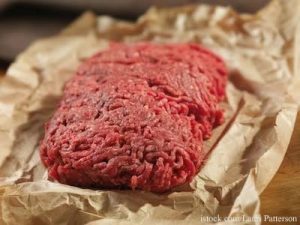Food and Water Watch has written a letter to Agriculture Secretary Tom Vilsack, asking him to look into the status of the equivalency determination with Canada regarding importation of beef products. The organization is also concerned with the privatized inspection system in some of Canada’s beef slaughter facilities that has “apparently received no formal recognition by the USDA’s Food Safety and Inspection Service (FSIS).”
 The recent huge recall for E. coli 0157:H7 of millions of pounds of beef products manufactured at XL Foods has prompted this letter. FSIS actually alerted Canadian food safety authorities about the contamination at the Sweetgrass, Montana FSIS border inspection station. The USDA never issued a recall in this situation but instead chose to issue a “Public Health Alert” which Food & Water Watch claims was confusing to consumers.
The recent huge recall for E. coli 0157:H7 of millions of pounds of beef products manufactured at XL Foods has prompted this letter. FSIS actually alerted Canadian food safety authorities about the contamination at the Sweetgrass, Montana FSIS border inspection station. The USDA never issued a recall in this situation but instead chose to issue a “Public Health Alert” which Food & Water Watch claims was confusing to consumers.
Food and Water Watch is also critical about the length of time between FSIS visits to Canada to conduct equivalency verification. It has been almost three years since the last audit. In fact, at the October 17, 2012 meeting between FSIS Executive Management Council and the Safe Food Coalition, FSIS was asked when auditors last visited the XL Foods plant. The response was that the agency “did not know”. Past audit findings by FSIS found major deficiencies in the meat inspection system in Canada.
XL Foods was one of the facilities that were using the privatized inspection model, which is called “High Line Speed Inspection System.” The establishment functions at much higher production volumes; in other words, enhanced line speeds similar to the proposed HIMP program that has come under much criticism in the United States. Local 401 of the United Food and Commercial Workers Union that represents XL Foods plant workers complained that line speeds were too fast and that “food safety was being compromised by increased pressure from company management to keep up production.” The union management added that “employees are pushed too hard as [XL] is more concerned, it seems, with the quantity of the beef produced rather than the quality of beef produced.”
The letter ends with several questions, including why FSIS Directed 8080.1 “Recall of Meat and Poultry Products” was not followed in the XL Foods recall situation. Food & Water Watch also asks if the USDA is going to stop work on the Beyond the Border pilot project that would eliminate border inspection of Canadian meat imports.





Unfortunately, this lack of inspection by the Food Safety and Inspection Service is not a rare case. Despite the growing amount of imported food and subsequent rise in foodborne illness outbreaks, FSIS has quietly cut back on the number of audits it performs on foreign meat and poultry processing facilities, although the reasons behind these reductions remain unclear. Regardless of what has led to this decline in audits of U.S. trading partners, retailers and others who receive imported food would be wise to review current plans and procedures to ensure the safety of their items.